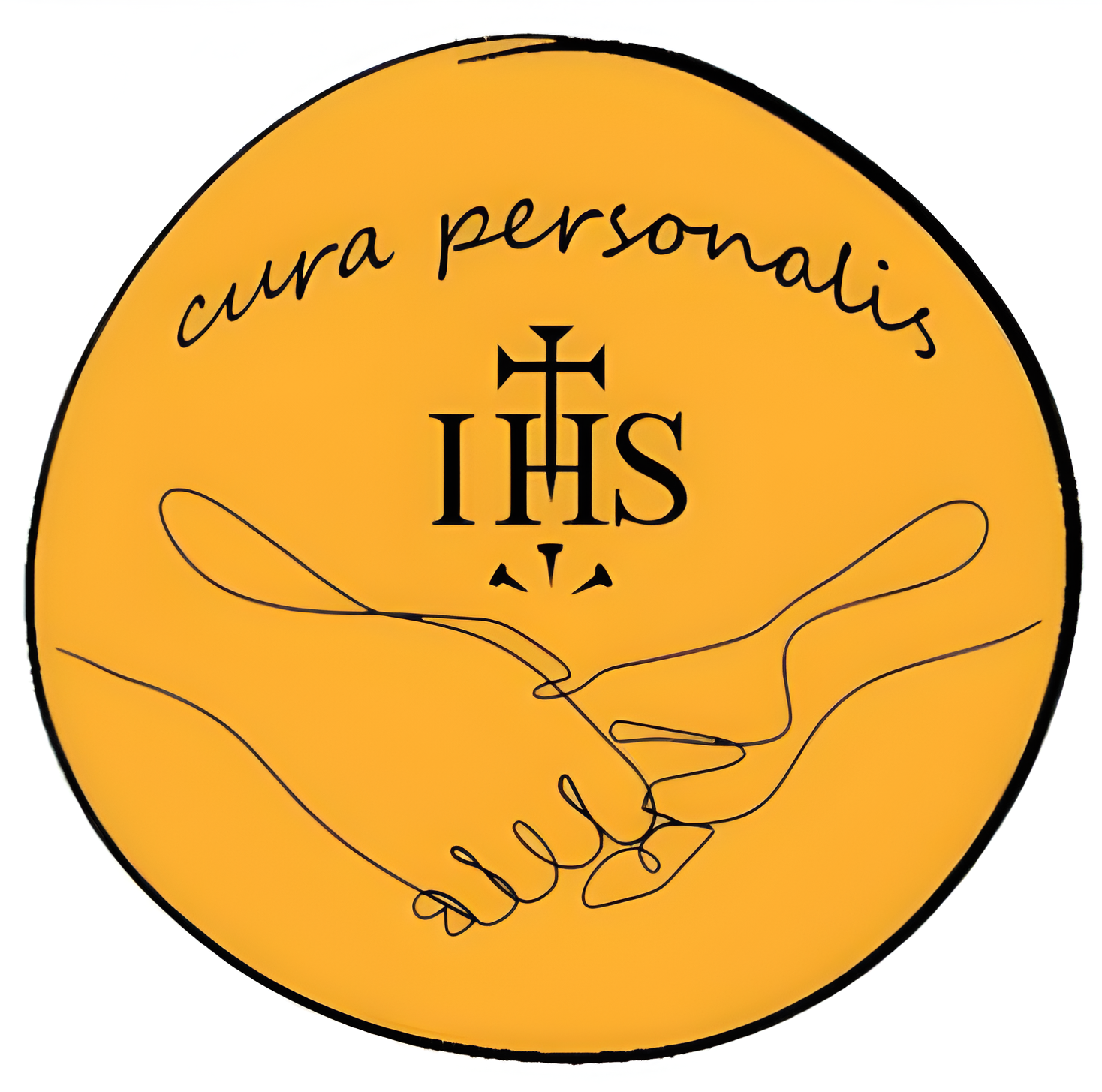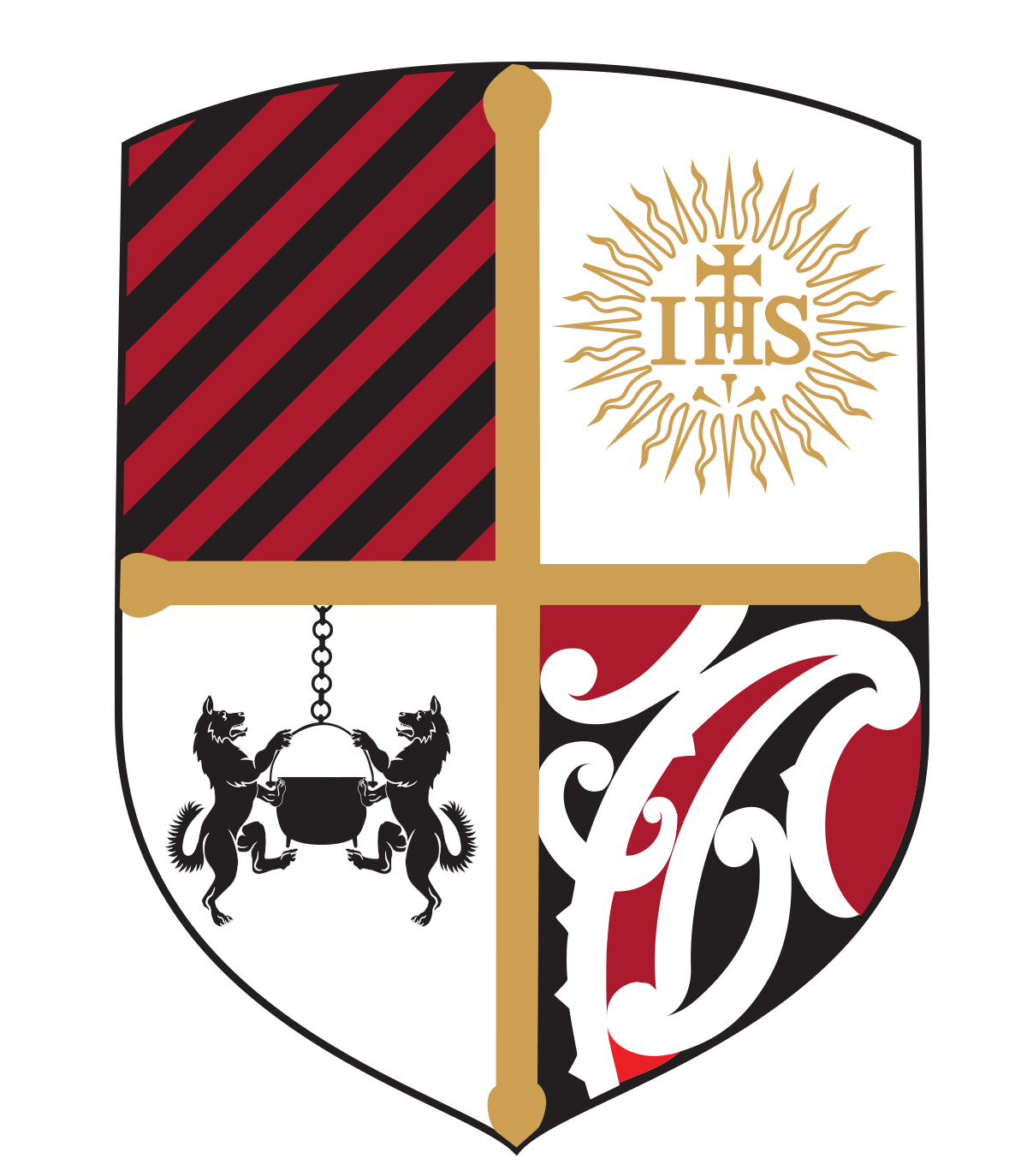Saint Ignatius of Loyola Catholic College will accompany ākonga, nurturing all aspects of who they are called to be—honouring and nourishing their spiritual, cultural, social, academic, physical, and emotional development. Our pastoral care model animates our Catholic Special Character and the mission and vision of Jesuit and Ignatian education within our context in Aotearoa, New Zealand.
Our
Pastoral
Model

He aha te mea nui?
He tangata.
He tangata.
He tangata.
What is the most important thing?
It is people,
it is people,
it is people.
Additionally, Wonderfully Made in God's Image highlights that "every person must be helped to come to an understanding of their own dignity and giftedness" (Wonderfully Made in God's Image, p. 8). This calls us to accompany each student with compassion, wisdom, and patience, recognising the sacredness of their life journey.
That same day two of them were walking to the village Emmaus, about seven miles out of Jerusalem. They were deep in conversation, going over all these things that had happened. In the middle of their talk and questions, Jesus came up and walked along with them.
Luke 24:13-15
Our Pastoral Support Team works to promote a positive, unified school culture where ākonga feel connected to others. We nurture ākonga so they develop self-respect and insight into their individual gifts and achievements, understanding how these can be shared to improve the lives of others. This vision for pastoral care reflects St Ignatius's belief about the purpose of a Jesuit school as a place of "improvement in living and learning for the greater glory of God and the common good" (Constitutions n.440).
- Every human being is created in the image and likeness of God. For this reason, every member of our community holds an inalienable dignity that is to be protected and nurtured
- Ākonga will be known, mentored and accompanied personally
- Our Pastoral Care structure provides opportunities for all students to grow towards personal excellence
- Our whole school community is committed to working together to meet the needs of all our students
The companion can usually see clearly, way before the young person they accompany, what the next step is, but should encourage them to figure this out for themselves.
Walking with Ignatius by Arturo Sosa, SJ
Our Pastoral Care Model weaves together vertical and horizontal layers of student support which embed programmes, systems and practices into the daily life of our college and across the curriculum.
A Kaiārahi is a mentor or guide. Each ākonga belongs to a Rōpū Kaiārahi. This is a group of ākonga who meet daily and are accompanied on their journey through school by a mentor or guide, their Kaiārahi . The Kaiārahi may also travel with the group as they progress through school so as to nurture high quality relationships where each ākonga is known personally. The Kaiārahi will be responsible for the day-to-day mentoring of ākonga, managing their co-curricular participation and will be responsible for guiding ākonga on their own pathway to personal excellence. The Kaiārahi will also be responsible for leading Friday’s Magis opportunity with this group. Each Rōpū Kaiārahi is formed using a blend of two different year groups. This approach introduces a new peer support and tuākana-tēina model which encourages collaboration and shared responsibility among students of different year groups within the same House community.
Manutaki essentially means a bird that leads from above. Each year level Manutaki is responsible for the overall well-being of each ākonga. Working closely with the Kaiārahi, the Heads of House and the Pastoral Support Team, they ensure that ākonga are accompanied on their own unique pathway towards personal excellence. They work alongside our wider Pastoral Support Team to navigate any potential barriers which ākonga may experience. They will also be involved in mentoring ākonga during Wednesday and Friday Magis time and supporting Kaiārahi to mentor ākonga. Year 7 Manutaki remains in this position to ensure consistent leadership of transition each year. All other Manutaki will travel through with their year group as they progress through school.
Ākonga will belong to one of our houses. These are led by the Head of House who takes responsibility for planning and delivering a programme of House activities which include House Mass and Wednesday Magis time. The Heads of House promote a deep sense of belonging through co-curricular opportunities and inter-house competition. Heads of House are also the Kaiārahi to the most senior Rōpū to enable them to work with the student House Leadership Team.
Our Pastoral Support Team works collaboratively to meet the pastoral needs of ākonga and comprises of:
● Deputy Principal
● Manutaki
● Kaiārahi
● Heads of House
● Māori Magis Lead
● Pasifika Magis Lead
● School Nurse
● Guidance Counsellors
● Emmaus Centre Team
